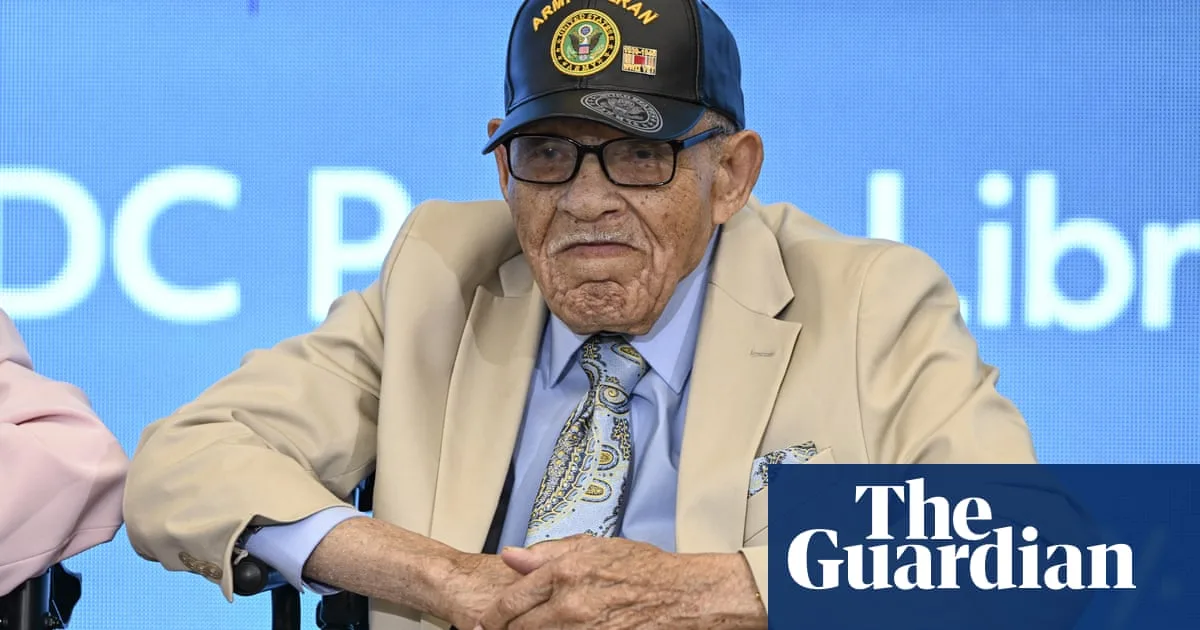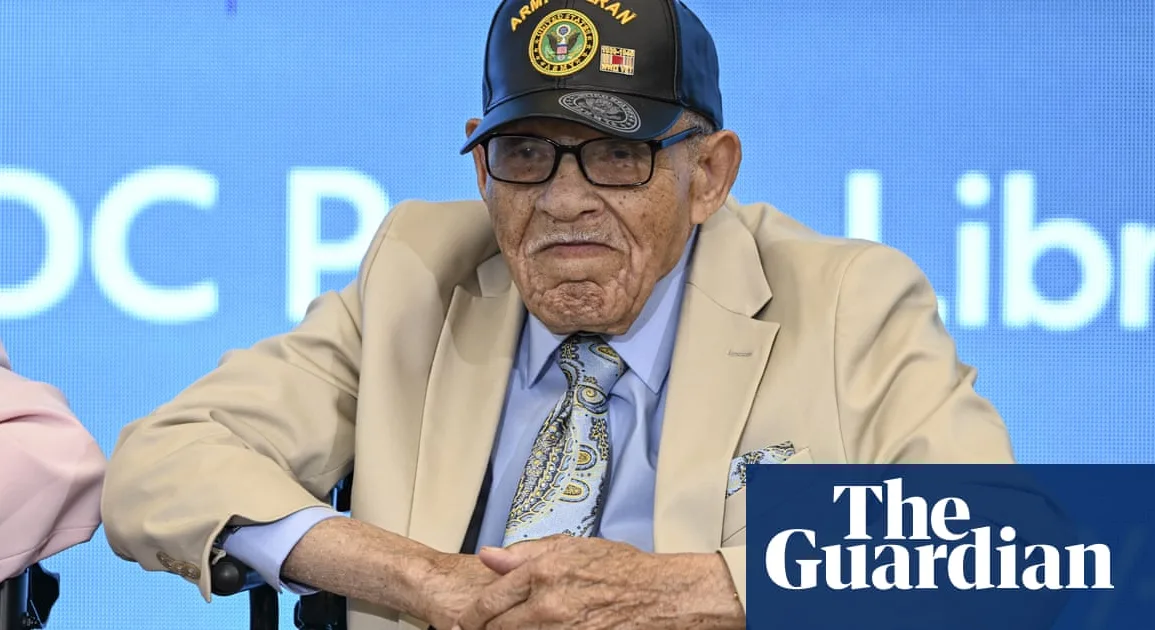
One of the last known survivors of the Tulsa race massacre of 1921 has died, his family has confirmed in a statement.
Hughes Van Ellis died from cancer Monday night at the age of 102, his family said.
He was one of the most outspoken activists for reparations over the massacre and fought for them on behalf of Tulsa’s Black community for decades. But, his grandnephew Ike Howard told CNN: “He died waiting on justice.”
The family’s statement added: “Two days ago, Mr Ellis urged us to keep fighting for justice. In the midst of his death, there remains an undying sense of right and wrong. Mr Ellis was assured we would remain steadfast and we repeated to him, his own words, ‘We are one,’ and we lastly expressed our love.”
The Tulsa race massacre was one of the deadliest cases of racist violence in US history. It began when a white mob stormed an area of Greenwood in Tulsa, Oklahoma, referred to as “Black Wall Street” because it was one of the wealthiest Black communities in the US at the time.
More than 35 city blocks of homes, businesses and churches were in ruins after the mob looted them and set them on fire. Historians estimate up to 300 people died.
Black Wall Street was never able to rebuild. And by the end of the 20th century, any hopes of doing so were squashed by city planners who claimed eminent domain on the land.
Known to his loved ones as “Uncle Red”, Ellis survived the massacre as a baby after escaping the mob with his family.
He grew up to be a proud military veteran, having fought with a racially segregated US army battalion in the second world war. His family called him a “loving family man”.
In 2021, Ellis testified in Congress with other survivors about the effects the massacre from a century earlier inflicted on his family and his community.
Speaking before a House judiciary subcommittee to demand reparations for the massacre, Ellis said: “You may have been taught that when something is stolen from you, you can go to the courts to be made whole. You can go to the courts to get justice. This wasn’t the case for us. The courts in Oklahoma wouldn’t hear us. The federal courts said we were too late.
“We were made to feel that our struggles were unworthy of justice. That we were less valued than whites, that we weren’t fully American. We were shown that in the United States, not all men were equal under law. We were shown that when Black voices called out for justice, no one cared.”
He added: “Please do not let me leave this earth without justice, like all the other massacre survivors.”
Shortly after, President Joe Biden declared 31 May 2021 a day of remembrance for the Tulsa Race Massacre 100 years earlier.
Although Ellis was a plaintiff in a lawsuit against the city of Tulsa and seven other defendants demanding restitution for the massacre, the case was dismissed by an Oklahoma judge in July. And no financial reparations have been awarded to the massacre survivors, their descendants or the victims’ descendants.
Furthermore, “not one of these criminal acts was then or ever has been prosecuted or punished by government at any level: municipal, county, state, or federal,” according to the Tulsa Historical Society and Museum.
The last two known survivors of the massacre are Ellis’s older sister, 109-year-old Viola Fletcher, with whom he escaped; and Lessie Benningfield Randle, 108.


